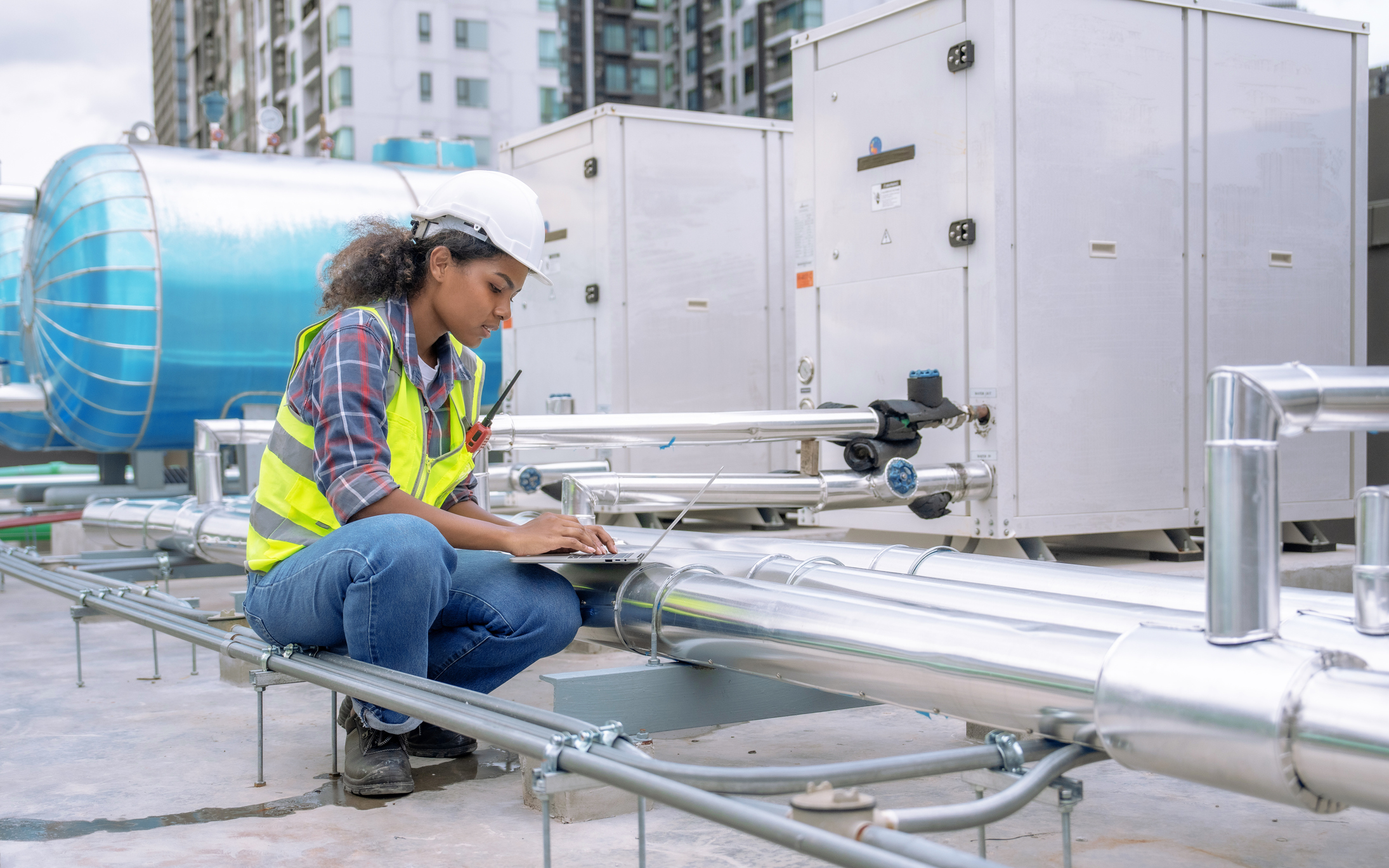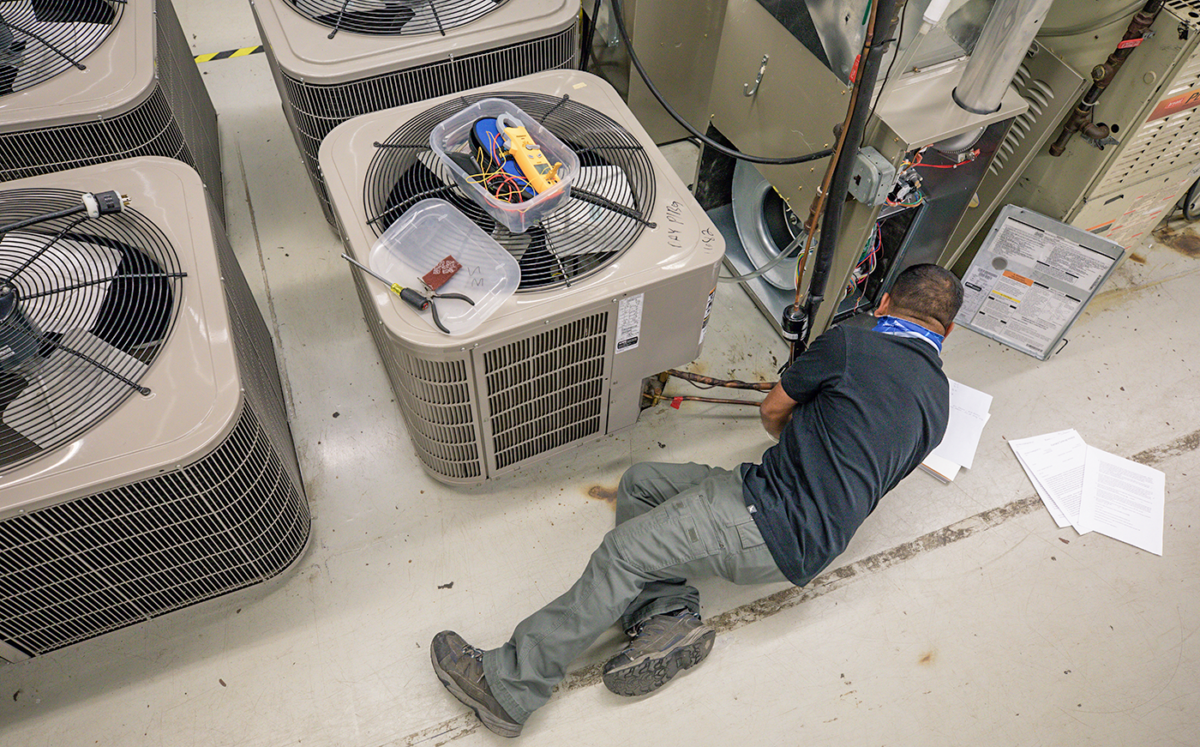An In-Depth Consider A/c Providers and Their Influence on Power Efficiency and Price Savings
With technical developments like wise thermostats and high-efficiency elements, the capacity for optimizing system performance is large. As we check out the detailed relationship between Cooling and heating systems and functional costs, including the shift towards environmentally friendly alternatives, the inquiry develops: how can these strategies be efficiently carried out to make the most of both ecological and financial benefits?

Importance of Cooling And Heating Equipments
heating and cooling systems are a crucial element of contemporary structures, playing an important function in maintaining healthy and comfy interior settings. These systems, including heating, air, and ventilation conditioning, are important for managing temperature, humidity, and air high quality, therefore making sure the well-being of passengers. Effective HVAC systems add significantly to developing an optimal indoor climate, which is critical for both industrial and household areas.
In industrial structures, cooling and heating systems are integral to offering a risk-free and effective atmosphere. By regulating indoor climate problems, these systems help avoid the growth of mold and mildew and the spread of air-borne pollutants, thus protecting the health of employees and clients. Additionally, in property settings, a/c systems improve living problems by supplying constant thermal convenience and improving indoor air high quality, which is essential for total health.
Moreover, the design and upkeep of a/c systems have a straight effect on power intake and operational expenses. Properly created and kept systems can significantly minimize energy use, resulting in reduced utility bills and a smaller carbon impact. The performance of these systems thus plays a critical duty in promoting sustainability and energy preservation within buildings, highlighting their significance in the modern architectural landscape.
Developments in A/c Modern Technology
Development in HVAC modern technology is reinventing the way buildings take care of indoor environments, introducing a new age of effectiveness and control. Recent advancements have concentrated on maximizing power intake while enhancing customer convenience. One remarkable growth is the integration of wise thermostats, which use expert system to learn tenancy patterns and adjust temperatures as necessary, decreasing unnecessary power use.
Variable Cooling Agent Flow (VRF) systems represent an additional significant jump forward. These systems permit precise temperature level control in various areas of a structure, improving convenience and decreasing power waste. VRF modern technology is particularly advantageous for huge commercial areas, providing adaptability and scalability.
Furthermore, the development of Net of Things (IoT) tools has actually changed a/c systems into interconnected networks capable of real-time information collection and evaluation. This connectivity makes it possible for anticipating upkeep, guaranteeing systems run at peak performance and lessening unanticipated downtime.
Additionally, innovations in products and layout, such as using high-efficiency coils and compressors, have improved overall system efficiency - Heating Contractor. The fostering of eco friendly refrigerants also emphasizes the industry's dedication to sustainability
These technical technologies are essential in lowering operational expenses and ecological influence, setting brand-new requirements for constructing climate management.
HVAC Upkeep and Efficiency
Making certain optimum performance of a/c systems extends beyond technical innovations; it likewise depends upon reliable upkeep techniques. Regular maintenance is vital for maintaining performance, reducing energy intake, and extending the life expectancy of a/c systems. The main objective is to guarantee that all parts function at their peak capacity, thereby minimizing power wastefulness and preserving consistent indoor comfort levels.
Regular upkeep tasks, such as cleaning or replacing air filters, checking cooling agent degrees, and evaluating ductwork for leakages, are vital for avoiding unnecessary strain on the system. Clogged up or unclean filters can obstruct air flow, triggering the system to function harder and eat even more power. Also, inadequate refrigerant degrees can decrease cooling down performance, resulting in higher functional expenses.
In addition, regular examinations by certified professionals can identify possible problems prior to they rise right into expensive repairs or system failings. These assessments usually include checking electric links, adjusting thermostats, and ensuring the overall honesty of the heating and cooling system. By addressing small troubles early, businesses and home owners can stay clear of unforeseen failures and enhance power effectiveness.
Cost-efficient Heating And Cooling Solutions
For those seeking to get the most out of their air, ventilation, and home heating conditioning systems without breaking the bank, exploring cost-effective cooling and heating services can make a substantial distinction. One prompt action is to buy programmable thermostats, which permit users to set certain temperatures for different times of the day, maximizing power use and lowering unneeded intake. By automating temperature level changes, property owners can accomplish significant financial savings on energy bills.
Normal upkeep is one more important component of cost-effective heating and navigate to this site cooling administration. Guaranteeing that filters are cleaned up or changed frequently, ductwork is secured, and devices are serviced by professionals can protect against pricey repairs and enhance system longevity. Preventative upkeep not just maintains system efficiency yet also assists in avoiding unanticipated malfunctions that can cause pricey emergency repairs.
In addition, retrofitting existing systems with energy-efficient parts, such as variable speed motors or high-efficiency compressors, can be a sensible financial investment. These upgrades boost operational performance, decrease energy use, and can often be implemented at a portion of the expense of a complete system replacement.
Environmental Influence Reduction
Decreasing the ecological effect of heating and cooling systems is critical in today's search of sustainable living. HVAC systems are considerable factors to energy consumption, making up nearly 40% of energy usage in business buildings. This energy need look here frequently depends on fossil gas, leading to greenhouse gas discharges and ecological degradation. Transitioning to a lot more effective systems, such as those making use of renewable resource sources, can significantly mitigate these effects.
Technological developments in cooling and heating layout and procedure, consisting of the combination of wise thermostats and energy-efficient heatpump, are critical in reducing carbon footprints. These developments enable optimized energy usage, lessening waste and enhancing general system performance. Furthermore, adopting regular upkeep techniques makes certain a/c systems operate at peak effectiveness, additional stopping unneeded power consumption.
Furthermore, the use of eco-friendly cooling agents is vital, as typical cooling agents, like CFCs and HCFCs, have been phased out as a result of their ozone-depleting homes. Modern alternatives, such as hydrofluoroolefins (HFOs), offer reduced ecological threats, aligning with worldwide environmental protocols. By embracing these lasting practices, heating and cooling services can play a transformative role in decreasing ecological influences, advertising energy effectiveness, and fostering a more lasting future.
Conclusion

In addition, the style and maintenance of A/c systems have a straight effect on power consumption and operational costs. Routine upkeep is important for maintaining performance, minimizing power usage, and expanding the life period of HVAC systems. Cooling and heating systems are significant contributors to energy usage, accounting for virtually 40% of power usage in business buildings. Furthermore, embracing routine maintenance techniques ensures Heating and cooling systems operate at peak efficiency, more stopping unneeded energy consumption.
The change to environmentally pleasant Heating and cooling systems additionally click here to read promotes and decreases operational costs sustainability. (Heating Contractor)